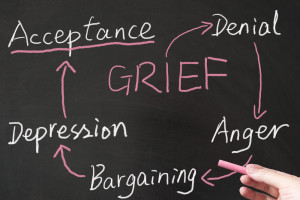Whether you suffer from general anxiety, social anxiety, or panic attacks, anxiety can be extremely agonizing, overwhelming, and exhausting. Anxiety symptoms, both mental and physical, can impede your daily life and make work, school, social activities, and relationships more difficult to handle. When you feel overcome by your anxiety, remember this:
You Are Not Alone
Sometimes it can feel like you’re the only one going through this and that no one else understands your anxiety. Despite this feeling, you are not alone. About 18% of the general population suffer from anxiety disorders. Anxiety is the most common mental illness. Chances are you have friends, relatives, neighbors, co-workers, and peers who also suffer from anxiety, or know someone who does. Don’t be afraid to speak up when you’re feeling anxious; you’ll be surprised by how many people are willing to offer their support.
You Are Strong
Those who suffer from anxiety are incredibly strong and brave people. Having anxiety is like being in a constant battle with yourself. You deal with things that are out of your control, yet you stay strong and fight hard to defeat it. You face your fears every day, and learn new ways to cope with your symptoms and overcome your stressors.
You Will Get Through This
If you suffer from panic attacks, then you know how grueling and antagonizing they can be. A panic attack is a sudden rush of intense fear and worry that makes you feel like you’re dying or going crazy. It feels all-to-real and the pain is also physical. But, no matter how frightening a panic attack may seem, you will get through it. It will pass, like all your other attacks have in the past. You’ll move on and become an even stronger person.
There Is Help
Anxiety is certainly a treatable condition. Aside from medication, Stuart MacFarlane, a notable therapist, says psychotherapy, exercise, yoga, and meditation can all help relieve anxiety symptoms. Talk to your doctor about ways you can treat your anxiety.


 From a psychological standpoint, people who act tough may be suffering from serious consequences according to a
From a psychological standpoint, people who act tough may be suffering from serious consequences according to a 